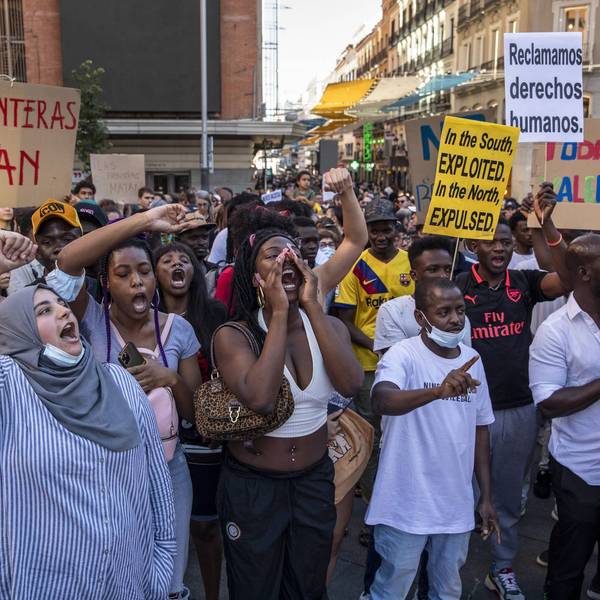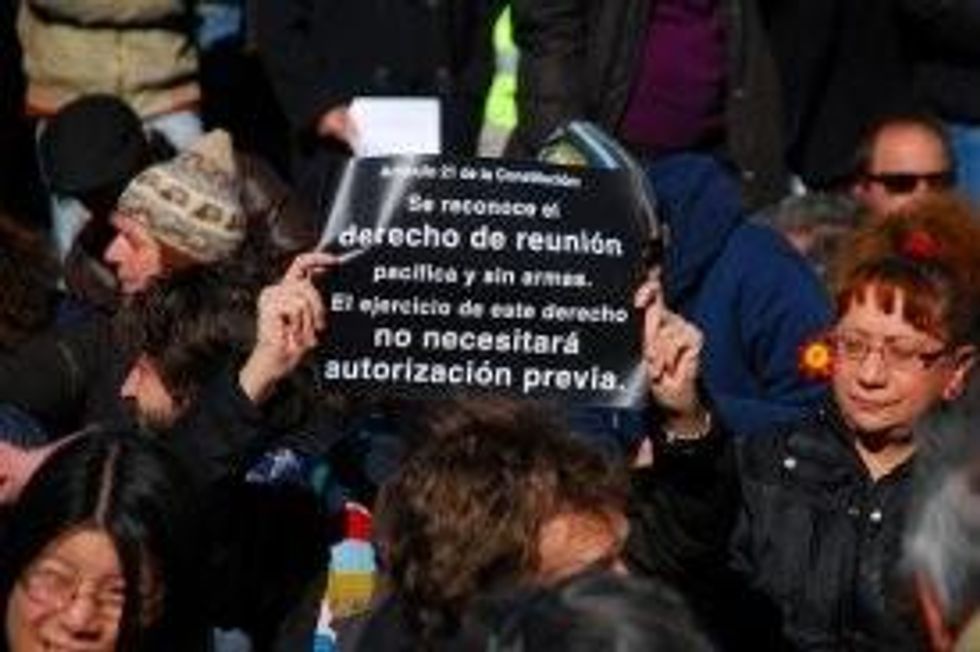Spain announced yesterday proposed changes to the country's penal code that many see as an attempt to clamp down on protests, silence dissent and dismantle democracy.
The changes, Spanish interior minister Jorge Fernandez Diaz said, were needed to toughen up punishment against street vandalism that "disturb public peace" and would include criminalizing intent to organize violent demonstrations through "any means including the Internet."
Fernandez Diaz said the measures were needed so as not to have a repeat of recent events in Barcelona, where Spanish police fired rubber bullets into crowds of protesters.
The Twittersphere exploded after the announcement with users tweeting the hashtags #holadictadura (hello dictatorship) and #soycriminal (I'm a criminal).
* * *
The Telegraph: Spain accused of 'draconian' plans to clamp down on protests
[The new laws have] raised fears that the new measures could be used to stem the wave of protests that began last summer with the birth of what has been dubbed the "indignado movement", when tens ouf thousands of peaceful protesters camped out in squares across Spain.
Protest groups were quick to draw comparisons to the fascist dictatorship of Gen Grancisco Franco. [...]
[Diaz] also said that the measures would extend authorities powers to deal with passive resistance as contempt of court.
The measures will make it "an offence to breach authority using mass active or passive resistance against security forces and to include as a crime of assault any threatening or intimidating behaviour," he said in Congress.




